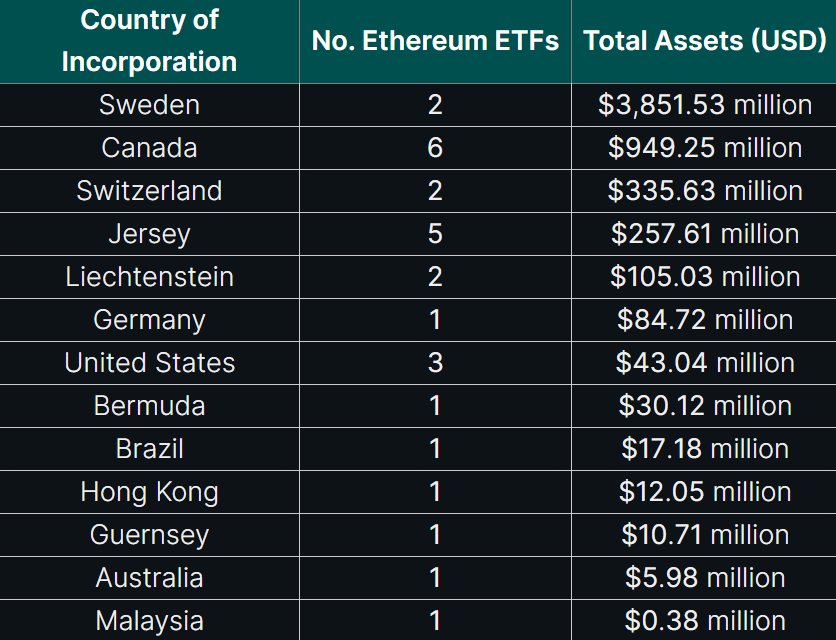Europe leads Ethereum ETF market with $4.6b AUM

While U.S. regulators deliberate on spot Ethereum ETFs, Europe and Canada already boast billions in spot and futures ETH-related products.
Per a Coingecko study, Europe dominates the global Ethereum (ETH) ETF scene with an 81.4% market share. The area has 13 ETH-backed ETFs split across spot products and futures funds, amounting to $4.6 billion in assets under management (AUM).
Canada is also a big market for ETH ETFs and commands a 16.6% market share of $949 million in AUM. ETFs have also become a gateway into crypto for many Canadian investors. Local regulators introduced stricter measures on crypto companies, leading to an exodus of exchanges like Binance and Bitstamp.
Global ETH ETF AUM stood at $5.7 billion as of Feb. 2, spread over 27 ETFs featuring both spot and futures funds. European Ethereum ETFs have traded since 2017, when Grayscale launched its ETH trust (ETHE). However, Grayscale’s fund was excluded from the study due to its close-ended structure.
The company was engaged with the U.S. Securities and Exchange Commission (SEC) over converting ETHE to a spot Ethereum ETF, but a decision was delayed till May, crypto.news reported.

Spot Ethereum ETFs in the U.S.
Following approval of spot Bitcoin (BTC) ETFs in the U.S., SEC chair Gary Gensler stressed that Ethereum-based products may not receive the same treatment. Gensler has repeatedly reiterated that most cryptocurrencies qualify as securities and must register with the SEC.
However, the SEC’s loss to Grayscale in court and the eventual approval of spot BTC ETFs on Jan. 10 may better the chances of a green light for spot ETH funds. A U.S. court found that the SEC’s denial of spot crypto products while allowing futures-based ETFs was “arbitrary and capricious”.
SEC Commissioner Hester Peirce also said Ethereum ETF approvals will not be the same as the Bitcoin counterpart, where a court ruling was required to cajole the securities watchdog into reassessing its decision.
In the interim, several spot ETH ETFs have been delayed until the second quarter of 2024, including bids from issuers like Fidelity and Invesco Galaxy.
















